Banach et al. Mayo Clin Proc 2015 Jan;90(1):24-34.
The effect of CoQ10 on muscle pain in people on statin therapy is uncertain with the evidence limited and inconsistent. CoQ10 cannot be recommended as a matter of routine supplementation to prevent muscle pain in people taking statins.
Category: Cardiology
Aug 08 2016
Does co-enzyme Q10 reduce statin-related muscle pain?
Permanent link to this article: https://evidencebasedmedicine.com.au/?p=1696
Permanent link to this article: https://evidencebasedmedicine.com.au/?p=1693
Permanent link to this article: https://evidencebasedmedicine.com.au/?p=1607
Permanent link to this article: https://evidencebasedmedicine.com.au/?p=1592
Permanent link to this article: https://evidencebasedmedicine.com.au/?p=1443
Permanent link to this article: https://evidencebasedmedicine.com.au/?p=1341
Apr 13 2011
Proton pump inhibitors with clopidogrel
van Boxel OS, et al. Cardiovascular and gastrointestinal outcomes in clopidogrel users on proton pump inhibitors: results of a large Dutch cohort study. Am J Gastroenterol 2010; 105: 2430–6
Concurrent proton pump inhibitors may increase the risk of cardiovascular outcomes in patients taking clopidogrel.
Permanent link to this article: https://evidencebasedmedicine.com.au/?p=1322
Mar 18 2011
Blood pressure measurement; conventional vs automated
Myers MG, et al. Conventional versus automated measurement of blood pressure in primary care patients with systolic hypertension: randomised parallel design controlled trial. BMJ 2011; 342: d286
Automated BP measurement is significantly closer to waking ambulatory BP than conventional manual measurement.
Permanent link to this article: https://evidencebasedmedicine.com.au/?p=1229
Mar 14 2011
Conventional CPR vs chest compression only
Permanent link to this article: https://evidencebasedmedicine.com.au/?p=1116
Permanent link to this article: https://evidencebasedmedicine.com.au/?p=1173

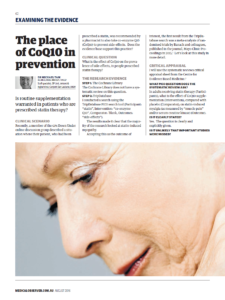

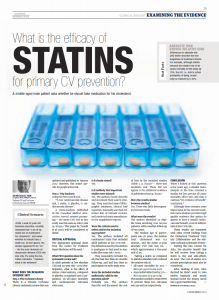
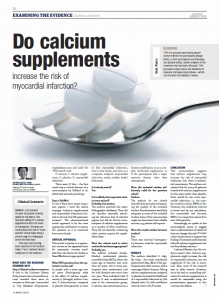

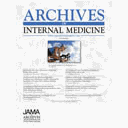

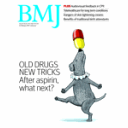


Recent Comments